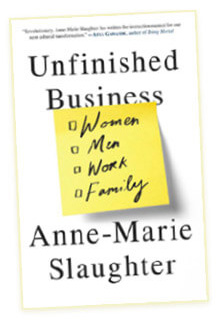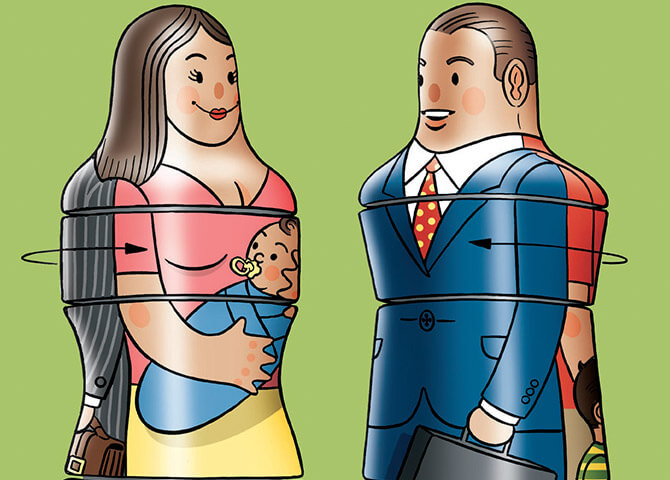We spend much of our lives working, men and women alike, either at paying jobs or on unpaid labor centered on our homes and our families. But what happens when those areas of work overlap? What happens when one group shoulders more of the responsibility for unpaid labor? And how does that imbalance affect us as individuals—and as a society?
These are the questions that students in sociology Professor Beth Anne Shelton’s course, “Women, Work, and Social Change,” explore, coming to understand paid employment and what forces determine one’s work status, earnings, and time spent employed. They also learn to read related data so they have skills that will allow them to ask questions about employment and find the answers, no matter how much employment changes.

EXPLORE
Want to learn more? Shelton recommends Anne-Marie Slaughter’s Unfinished Business: Women Men Work Family.
“Sometimes we view paid work as independent of other obligations, but research clearly shows that all obligations interact,” says Dr. Shelton. “As a result, women’s greater average responsibility for unpaid work in the home must be understood if we are to understand their paid work. Likewise, since most men spend less time on housework and childcare than women, this also impacts their paid employment.”
Shelton points out that these issues have become more prevalent since the COVID-19 pandemic began.
“We have seen the different home obligations play out over the last few years during the pandemic as women left the labor force to homeschool and care for children in greater numbers than men,” she says. “The gender differences will impact women’s and men’s work lives for years to come.”
Ultimately, as Shelton notes, studying the shifting interplay of paid and unpaid work for men and women is about gaining a better understanding of ourselves and others—which can help us recognize and address disparities.
“I have always been interested in inequality and learning how to reduce it,” she says. “At the same time, I have studied families for many years. What I like about studying women and work is that it requires me to explore the relationship between family and employment. It also helps show the extent to which family involves work, which sheds light on a sphere that was viewed as ‘private’ and beyond the scope of serious scholarship for too long. Understanding work is essential for understanding how people live as well as our own lives.”



